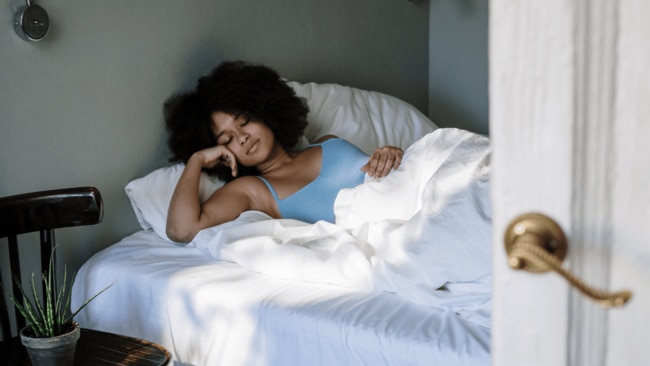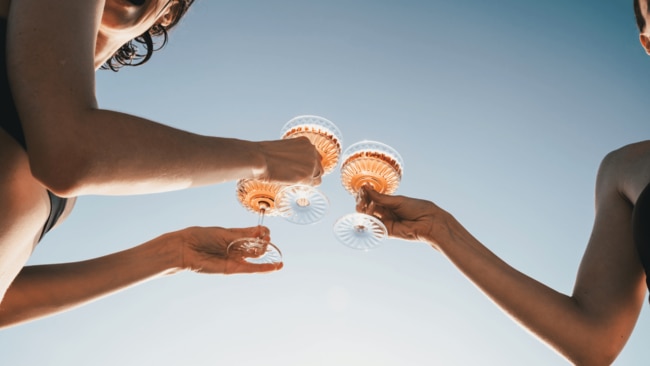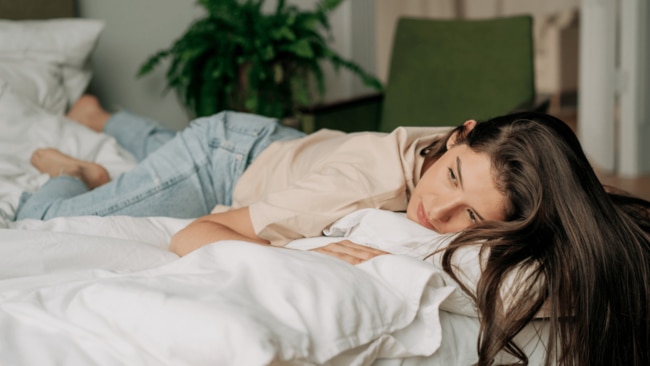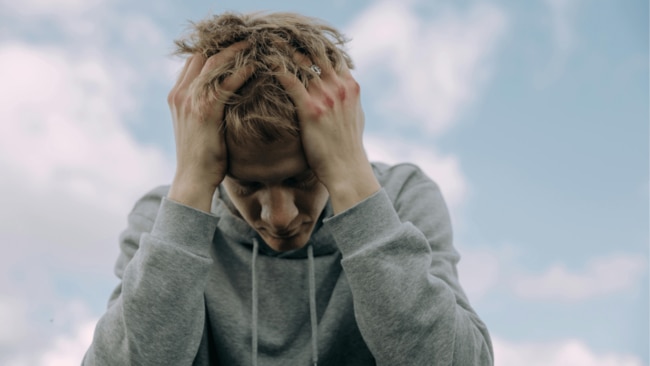The unexpected way alcohol sabotages your mental health
Your liquid destresser could make you more stressed
Lifestyle
Don't miss out on the headlines from Lifestyle. Followed categories will be added to My News.
Many of us love a quiet drink to decompress after a long day. But your stress reliever may actually make you feel worse.
We all love a wine to wind down after a long day.
Gen Z is drinking less than previous generations, and the sober-curious movement continues to grow more popular, but a drink is still pretty high on the list of many people trying to restore some sense of calm after a stressful day.
Whether it’s a beer on the lounge, a wine with dinner or a bar-quality cocktail, your wind-down beverage could actually make your feelings of stress, anxiety and panic worse.
Why alcohol makes us feel calm
Alcohol is a depressant, so it does work to make us feel calm and relaxed, but it also affects our brain chemistry, which can make our anxiety worse than it was pre-drink.
Alcohol boosts our brain’s release of gamma-aminobutyric acid (GABA), which gives us that feeling of calm, at the same time as inhibiting the release of the neurotransmitter glutamate, which is linked to anxiety.
How alcohol triggers anxiety
Alcohol-induced anxiety can hit well before the morning after's hangxiety, and there’s a fine line between these chemicals giving us that relaxing feeling and bringing on a panic attack mid-night out.

Clinical psychologist Lexine Stapinski told the ABC, “the more alcohol someone drinks, the more there's a physiological effect where it actually, paradoxically, increases anxiety levels.”
According to Drink Aware, heavy drinking can deplete levels of GABA, increasing feelings of panic and tension. Our central nervous systems can get used to suppressing the effects of alcohol, so our brain is affected by the sudden drop of alcohol in our body. ‘You can go straight into ‘fight or flight’ mode as the alcohol leaves your system – the same reaction as an anxiety disorder.’
Alcohol can also make us dehydrated or affect our sleep, both of which are never great for warding off anxiety.

We can feel more social and confident than ever after a drink, but reliance on alcohol to help us be our most socially apt version of ourselves can actually make our social anxiety worse.
If we become reliant on drinking to chat, we can lose confidence in our social abilities without it.
Is it hangxiety or a panic attack?
Hangxiety is so common that we brush it off as a universal experience to be expected on a Sunday morning.

While hangxiety can feel horrible, panic attacks are another beast entirely.
People with depression or anxiety are more likely to feel anxious after drinking, and the anxiousness after a night of alcohol-induced calm can actually be worse than their usual baseline level of anxiety.
Internal medicine and addiction specialist at Henry Ford Health, Tyler Trahan explained that “drinking alcohol dumps a flood of dopamine into the pleasure center of the brain. The feel-good chemical swirls through your head, but the rush only lasts for a short while.”
“When dopamine levels dip back down, feelings of anxiety rebound. Researchers think that may be one reason why people who experience hangxiety, especially those who are extremely shy, may have a higher risk of developing alcohol use disorder (AUD).”

Symptoms of hangxiety can include:
- Feelings of shame, guilt or regret
- Irritability
- Paranoia
- Rapid heart rate
- Shakiness
- Sweating
- Trouble focusing

Panic attacks however, can feel overwhelming and hard to talk yourself out of.
Symptoms of a panic attack can include:
- A feeling of fear or overwhelming panic
- Rapid heart rate
- Difficulty breathing
- Feeling like you're choking
- Excessive sweating
- Dizziness or light-headedness
- Feeling like you’re losing control
According to Beyond Blue, 'managing your drinking more mindfully can help you feel more balanced, more in control, and more like yourself.'
In an emergency please call 000
If you or someone you know needs help, phone Lifeline on 13 11 14 or the 24- hour Suicide Call Back Service 1300 659 467.
Mental health professionals are available 24/7 at the beyondblue Support Service – 1300 22 46 36 or via beyondblue.org.au/get-support for online chat (3pm-12am AEST) or email response.
More Coverage
Originally published as The unexpected way alcohol sabotages your mental health





